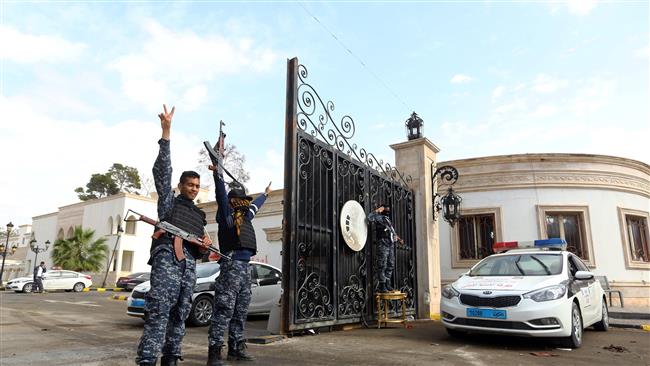Libya’s GNA urges foreign intervention to end clashes in south
Officials from Libya’s government have called on the international community to intervene in the country amid fears that fighting in the neglected south could escalate.
Fayez al-Sarraj, the head of Libya’s UN-backed Government of National Accord (GNA), said in a letter published on Saturday that there was the fear that renewed fighting between government forces and rival militias south of Libya could turn into “civil war.”
“We ask you to take a firm and decisive stance with regards to this escalation and we will support all decisions to re-establish security and stability in Libya,” Sarraj wrote in his letter which was addressed to bodies including the European Union, the United Nations and the Arab League.
Fighting has escalated over the past days between GNA forces and rival militias from the self-proclaimed Libyan National Army (LNA). The clashes erupted after LNA, commanded by military strongman Field Marshal Khalifa Haftar, sought to recapture the Tamenhant air base from the GNA-backed militants. Haftar has claimed that GNA-backed militia had used the base to launch attacks on LNA northeast of Libya. The GNA denies any links to the attacks on oil facilities under the control of rival eastern authorities but has announced a counter-offensive against the LNA. Clashes have continued unabated as Haftar and his forces try to maintain their shaky grip on Tamenhant.
Sarraj would not elaborate in his letter what form of intervention he was seeking, but said the “urgent” action was needed "to end the deterioration of the situation in south Libya."

"This sudden and unjustified escalation... puts the country on the brink of civil war," read the letter.
Libya slipped into chaos in 2011 after long-time dictator Muammar Ghaddafi was toppled and killed after a series of violent protests. The country has now two governments, one ruling in the capital Tripoli and the other based in the far-east in the city of Tobruk. The United Nations supervised a series of negotiations in 2015 that led to the establishment of the GNA late that year. However, both Haftar and the eastern-based parliament have refused to recognize the UN-backed unity government.
Relentless Israeli ceasefire violations justify need for self-defense: Lebanese MP
Tel Aviv tells Damascus Israeli forces will remain in occupied territory: Report
Dec. 22: ‘Axis of Resistance’ operations against Israeli occupation
‘Abhorrent’: Oxfam says only 12 trucks delivered aid in North Gaza since Oct.
VIDEO | Leader receives religious eulogists on Hazrat Fatima birth anniv.
Pope Francis slams Israel’s ‘machine-gunning’ of Gaza children
US hostage-taking of Iranian nationals violation of intl. law: Deputy FM
VIDEO | Carol Singers for Palestine on London’s Parliament Square














 This makes it easy to access the Press TV website
This makes it easy to access the Press TV website